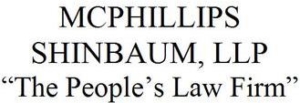Murder Conviction Overturned; DA Vows Retrial
The Limestone County District Attorney has stated that he will retry a man after the defendant’s 2012 murder conviction was overturned on appeal. The appeals court stated that the jury had been improperly instructed.
41-year-old Keith George was sentenced to 50 years in prison following the 2009 shooting death of his 26-year-old nephew Rusty George at a house party in Ardmore. But an appellate court later ruled that the jury received no instructions concerning Alabama’s somewhat-maligned “stand your ground” law. How the incident began is hotly disputed and has a direct bearing on the legitimacy of Keith’s defense of self-defense. Keith claims that he was trying to stop Rusty from driving home drunk in a pickup truck, while other witnesses stated that Keith was angry because Rusty had bought the truck from Keith and that Rusty had not paid in full.
Alabama law
Alabama’s stand-your-ground law states that, in most circumstances, a person has no duty to retreat from a place that the person has a lawful right to be. Several other states have this type of law, or a similar “castle doctrine” law. In order for the defense to apply, the defendant must also establish more traditional elements of a self-defense defense:
- The aggressor is using or about to use deadly force. A pickup truck or other motor vehicle can be considered as a deadly weapon in most instances.
- The aggressor is using or about to use physical force against an occupant of a dwelling. The Georges were in the street, so this element is inapplicable.
- The aggressor is attempting to commit a certain named offense, including kidnapping, first- or second-degree assault or forcible rape. Again, none of these elements apply in this case.
If you or a loved one has been accused of a crime, make sure your attorney knows about all the defenses that may be available. The attorneys at McPhillips Shinbaum have been defending homicide cases since 1978. They know the law, and they know how to sway a jury to your side. Contact McPhillips Shinbaum today to schedule your free consultation.








